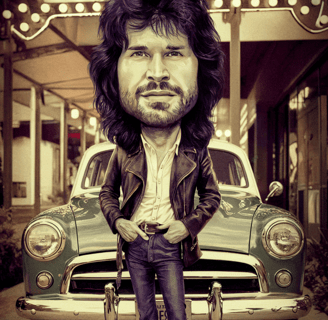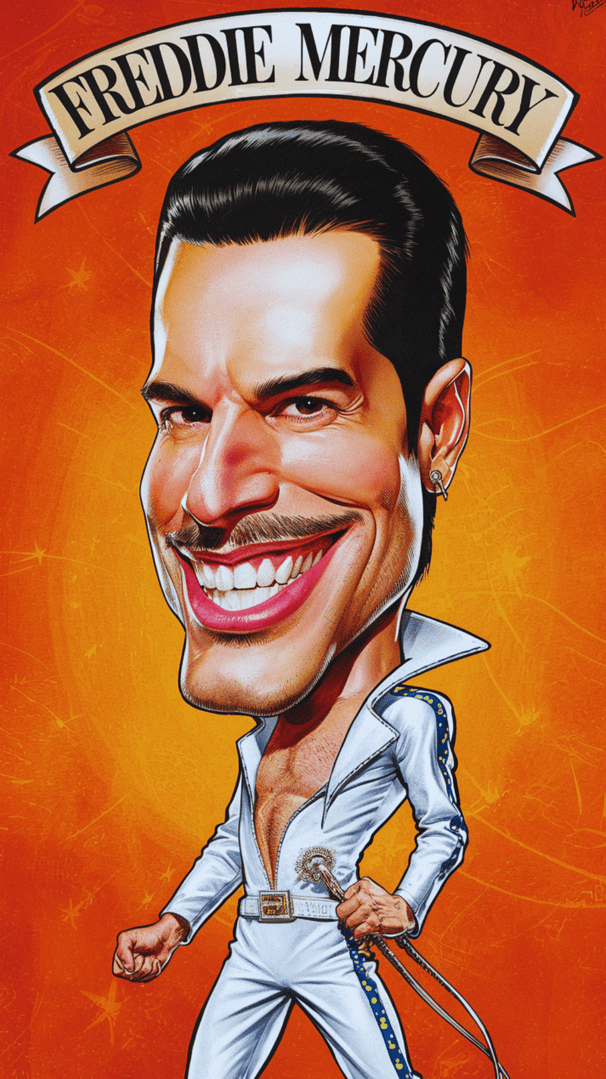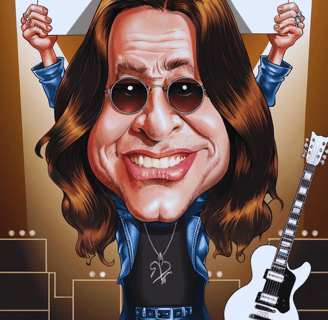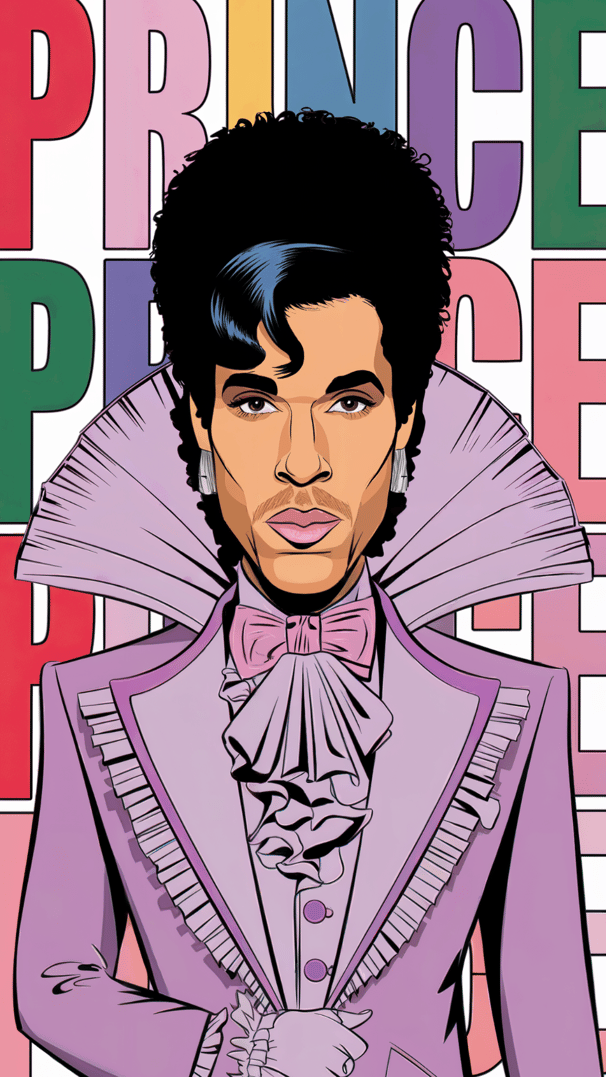Legendary Musicians and Narcissism: Rock Stars with Over-the-Top Egos
Music has a way of magnifying personalities, and some of the most legendary musicians have become famous not just for their talent but for their massive egos.
Abuse No More
7 min read


Legendary Musicians and Narcissism
Music has a way of magnifying personalities, and some of the most legendary musicians have become famous not just for their talent but for their massive egos. Known for outlandish behavior, controversial statements, and an almost unstoppable need for the spotlight, some rock stars seem to embody classic narcissistic traits. Here, we’ll explore seven legendary musicians who became as famous for their grandiosity and need for admiration as for their music.
Narcissistic Traits in Rock Stars
Narcissistic tendencies in the music industry often appear as:
Grandiosity and Fame-Seeking: Many rock stars see themselves as larger-than-life, feeling their work and persona are groundbreaking and revolutionary.
Self-Destructive and Impulsive Behavior: Narcissistic rock stars often make reckless choices, feeling invincible and unconcerned with consequences.
Manipulative Relationships and Power Struggles: Narcissism can lead to strained relationships with bandmates, managers, and family due to a need for control and dominance.
7 Rock Stars with Narcissistic Tendencies
1. Axl Rose (Guns N’ Roses)
Grandiosity and Control: Axl Rose was known for his perfectionism and had a reputation for showing up late or canceling shows if conditions weren’t exactly to his liking. His sense of self-importance sometimes overshadowed the band’s commitments to fans and contracts.
Explosive Temper and Manipulation: Rose’s temper was infamous, leading to multiple altercations and on-stage rants aimed at fans and fellow band members. His outbursts often kept others walking on eggshells around him.
Isolation and Withdrawal: Rose’s frequent withdrawals from the music scene, especially during the band’s peak, reflected his desire for control and detachment, often only returning when he felt circumstances met his standards.


2. Kanye West
Self-Proclaimed Genius: Kanye frequently refers to himself as a “creative genius” and has compared himself to iconic figures like Walt Disney and Steve Jobs. This grandiosity is central to his public persona, and he regularly claims his work is beyond criticism.
Need for Public Validation: His public statements and social media posts often demand admiration, and he has repeatedly taken dramatic steps to stay in the spotlight.
Unpredictability and Impulsive Behavior: Known for erratic public behavior, such as interrupting award shows, Kanye’s impulsiveness is a hallmark of his need to assert dominance and maintain control of his narrative.


3. Jim Morrison (The Doors)
Grandiosity and Self-Destructive Behavior: Morrison saw himself as a shaman-like figure, performing with the belief that he was transcending boundaries and experiencing life beyond ordinary perception.
Risk-Taking and Rebellion: Known for his wild lifestyle, Morrison’s disregard for authority and personal safety led him into multiple conflicts with the law. His belief in his own invincibility is characteristic of narcissistic self-destructiveness.
Manipulative Stage Presence: Morrison often controlled his audience’s emotions, using his unpredictable performances to captivate and manipulate them, reinforcing his sense of power.
3. Jim Morrison (The Doors)
Grandiosity and Self-Destructive Behavior: Morrison saw himself as a shaman-like figure, performing with the belief that he was transcending boundaries and experiencing life beyond ordinary perception.
Risk-Taking and Rebellion: Known for his wild lifestyle, Morrison’s disregard for authority and personal safety led him into multiple conflicts with the law. His belief in his own invincibility is characteristic of narcissistic self-destructiveness.
Manipulative Stage Presence: Morrison often controlled his audience’s emotions, using his unpredictable performances to captivate and manipulate them, reinforcing his sense of power.
4. Freddie Mercury (Queen)
Lavish Lifestyle and Grandiosity: Freddie Mercury lived a life as flamboyant as his music, embracing a rock-and-roll persona that celebrated excess. Known for his charisma and powerful stage presence, he believed Queen was the best band in the world.
Image Control and Perfectionism: Mercury was meticulous about Queen’s image and performances, insisting on perfection and rehearsing tirelessly. His need to control every detail reflected his high standards and self-importance.
Complex Personal Relationships: Mercury’s relationships were often complicated, marked by emotional highs and lows that reflected a need for both admiration and control.




5. Ozzy Osbourne (Black Sabbath)
Grandiosity and Superiority: Often called the “Prince of Darkness,” Osbourne embraced an alter-ego that reinforced his sense of importance within the rock world.
Self-Destructive and Impulsive Behavior: Ozzy’s public antics, like biting the head off a bat on stage, showcased his disregard for norms and desire to shock. His excessive drinking and drug use further highlighted his reckless attitude.
Unpredictability in Relationships: Osbourne’s relationship with Sharon Osbourne, marked by highs and lows, reflected his need for a partner who would both support and tolerate his unpredictable nature.
6. Prince
Unwavering Self-Belief and Control: Prince’s meticulous control over his music, image, and brand was legendary. He often clashed with record labels, demanding full rights and creative control, even changing his name to a symbol to rebel against corporate limitations.
Isolation and Exclusivity: Known for his secrecy and highly controlled public appearances, Prince maintained an aura of mystery and superiority, positioning himself as an untouchable artist.
Demand for Perfection in Collaborations: Musicians and collaborators often reported that Prince expected total commitment, pushing them to reach his high standards, sometimes at the expense of their own well-being.


7. John Lennon (The Beatles)
Idealized Self-Perception: Lennon believed his music had the power to change the world, often attributing a sense of divine purpose to his work. He saw himself as a voice of peace and revolution, despite sometimes contradicting those ideals.
Power Struggles in Relationships: Lennon’s dynamic with Paul McCartney was often competitive, with both artists pushing for control over the band’s direction. Lennon’s desire for influence often led to tension within The Beatles.
Public Persona vs. Private Reality: Lennon crafted a public image of peace and love but reportedly treated people close to him poorly. This contrast between public persona and private behavior reflects a narcissistic lack of accountability.
The Duality of Narcissism and Creativity in Music
In rock music, narcissistic traits like grandiosity and disregard for rules can foster a unique kind of creativity and charisma. These traits help some musicians achieve unprecedented levels of fame and influence, but they often come at a cost to personal relationships and mental health.
Final Thoughts: The Price of Fame and Ego in Rock
The rock-and-roll lifestyle is famously intense, and for many musicians, the highs of fame feed an already inflated ego. However, the self-destructive behaviors and complex relationships that follow often reveal the darker side of narcissism in the music industry.
Do you recognize any of these traits in people you know? Learn how to set boundaries and protect your mental health with our free resources at Abuse No More, designed to help you identify, minimize, and control narcissistic behaviors in your life.




Bonus: Using the IMC Method to Handle Narcissistic Behaviors in the Music World
The IMC Method—Identify, Minimize, Control—is a powerful framework to navigate relationships and interactions with narcissistic individuals, even in the high-octane world of music and entertainment. Whether you're a fan, collaborator, or someone close to a narcissistic rock star, these actionable steps can help you maintain your mental health and boundaries.
1. Identify
Spot the Signs of Narcissistic Behavior: Pay attention to patterns like constant need for admiration, grandiosity, or manipulative tendencies. Recognizing these traits early helps you understand the dynamics at play.
Analyze the Impact: Ask yourself how their behavior affects your emotional well-being. Does their need for control leave you feeling invalidated or overwhelmed?
Separate the Persona from the Person: Many rock stars craft exaggerated public personas. Identify whether their behavior is an act or a deeper reflection of their personality.
2. Minimize
Limit Your Exposure: If you're interacting with a narcissistic personality, whether as a fan or a collaborator, avoid situations where their toxic behavior can negatively impact you.
Avoid Feeding the Ego: Narcissistic individuals thrive on validation. Minimize interactions that reinforce their sense of superiority, like excessive praise or attention to manipulative outbursts.
Establish Healthy Boundaries: Whether you're negotiating with a high-maintenance artist or dealing with a difficult personality in your life, clearly define what behavior you will and won’t tolerate.
3. Control
Take Control of Your Reactions: Remember, you can't control a narcissistic person's actions, but you can control how you respond. Avoid emotional reactions that give them power over your feelings.
Focus on Your Needs: In a professional or personal setting, ensure your goals and well-being remain a priority. Don’t let their demands or drama overshadow your aspirations.
Use Tools to Stay Grounded: Employ techniques like mindfulness, journaling, or therapy to help you process interactions and reinforce your emotional resilience.
Real-World Application: Narcissism in the Entertainment Industry
Imagine you're a music producer dealing with an artist like Axl Rose. Using the IMC Method, you would:
Identify his need for perfectionism and recognize how it might disrupt schedules or cause tension.
Minimize conflicts by setting clear expectations about studio time and project deadlines, reducing opportunities for last-minute changes or blowups.
Control your reactions during temperamental outbursts by staying calm and redirecting focus back to the music, ensuring progress without escalating the drama.
The IMC Method is not about "fixing" the narcissistic individual but rather empowering yourself to navigate their behaviors without losing your peace of mind or compromising your boundaries.
Want to Learn More?
Explore our free resources at Abuse No More to dive deeper into the IMC Method and gain tools to protect yourself from narcissistic behaviors in any setting. Empower yourself to identify, minimize, and control today!
